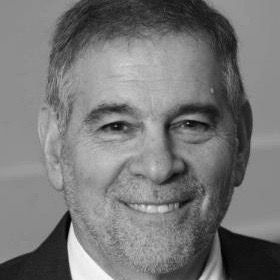As one who has studied a folio of Talmud each day for the last 14 months, I am tempted to present President Hassan Rouhani’s interview with CNN as a text to be studied, dissected point by point, sentence by sentence in talmudic fashion.
According to the translator hired by the Iranian government to translate the CNN interview, the Iranian President said:
“I have said before that I am not a historian personally and that when it comes to speaking of the dimensions of the Holocaust as such, it is the historians that should reflect on it.
“But in general, I can tell you that any crime or — that happens in history against humanity, including the crime that the Nazis committed towards the Jews, as well as non-Jewish people, is reprehensible and condemnable, as far as we are concerned.
“And just as even such crimes are — if they are to happen today against any creed or belief system or human being as such, we shall again condemn it.
“So what the Nazis did is condemnable. The dimensions of whatever it is, the historians have to understand what it is. I am not a historian myself, but we — it must be clear here, is that when there is an atrocity, a crime that happens, it should not become a cover to work against the interests or — or justify the crimes against another nation or another group of people.
“So if the Nazis, however criminal they were, we condemn them, whatever criminality they committed against the Jews, we condemn, because genocide, the taking of the human life, is condemnable and it makes no difference whether that life is a Jewish life, a Christian or a Muslim or what.
“For us, it’s the same. It’s the taking of a human life and an innocent human life is (INAUDIBLE) in Islam. It’s actually something that we condemn and our religion also rejects.
“But this does not mean that, on the other hand, you can say, well, the Nazis committed crimes against, you know, a certain group, now, therefore, they must usurp the land of another group and occupy it. This, too, is an act that should be condemned, in our view.”
COMMENTARY
CAMERA, the media monitoring organization, has claimed:
Rouhani never said the phrase “the Holocaust.” He never said “reprehensible.” And he never indicated that he believes the Nazi genocide of the Jews as documented by real historians ever happened.
Multiple independent translations by Farsi speakers conflict with CNN’s translation and support a claim by Iran’s radical Fars News Agency that CNN mistranslated the interview. Instead of “the Holocaust,” Rouhani vaguely referred to “historical events.”
Let us also examine CAMERA’s words:
Significantly, CNN maintained that the president’s translator — and, to the best of my knowledge, nobody has challenged them on this matter — was hired by the Iranian government and not by the network.
Might we not learn that Rouhani was addressing two audiences — the international audience that he was seeking to charm and the audience of his critics at home who are ready to pounce on every word? So he, as many political leaders do, walked the fine line between covering his “posterior” at home and charting a different course as he approached the West.
Would it not be wise to accept the words as translated, and proclaim time and again that the president of Iran has accepted the basic historical fact of the Nazi crimes against the Jews — and others — commonly known as the Holocaust, and then force him to deny it if he was misunderstood, mistranslated or if the pressure from home becomes too great?
His first sentence was: “I have said before that I am not a historian personally and that when it comes to speaking of the dimensions of the Holocaust as such, it is the historians that should reflect on it.”
I concur.
As one who has edited a book of more than 800 pages titled “The Holocaust: The Known, the Unknown, the Disputed and the Reexamined” consisting of essays by more than 30 of the greatest scholars of three generations, I salute him for saying that understanding the dimensions of a historical event is the work of historians, but not of historians alone.
Poets and philosophers, psychiatrists and sociologists, physicians and lawyers, historians and writers, artists and musicians reflect upon the meaning of the Holocaust. I am pleased that he endorses their efforts.
Who can take issue with his next two paragraphs expressing moral condemnation?
“But in general, I can tell you that any crime or — that happens in history against humanity, including the crime that the Nazis committed towards the Jews, as well as non-Jewish people, is reprehensible and condemnable, as far as we are concerned.
And just as even such crimes are — if they are to happen today against any creed or belief system or human being as such, we shall again condemn it.”
Neither can one object to the paragraph that follows shortly thereafter:
“So if the Nazis, however criminal they were, we condemn them, whatever criminality they committed against the Jews, we condemn, because genocide, the taking of the human life, is condemnable and it makes no difference whether that life is a Jewish life, a Christian or a Muslim or what.”
I was intrigued by what the president then said:
“For us, it’s the same. It’s the taking of a human life and an innocent human life is (INAUDIBLE) in Islam. It’s actually something that we condemn and our religion also rejects.”
I wish that CNN’s Christiane Amanpour had followed up.
Does that mean that he condemns the groups supported by his own government and its predecessors that fired rockets on non-combatants and that used bombs in civilian areas and used suicide bombing as a weapon without distinguishing between combatants and innocent civilians? Forget for a moment violence against Israelis and Jews. Is the president really ready to condemn the violence of radical Islam against fellow Muslims?
We should remind him of these words and see how they are reflected in Iranian policy going forward.
The venerable Anti-Defamation League’s Abraham Foxman objected to the next two paragraphs — the seifa, the last part of his statement.
“But we — it must be clear here, is that when there is an atrocity, a crime that happens, it should not become a cover to work against the interests or — or justify the crimes against another nation or another group of people …
“But this does not mean that, on the other hand, you can say, well, the Nazis committed crimes against, you know, a certain group, now, therefore, they must usurp the land of another group and occupy it. This, too, is an act that should be condemned, in our view.”
Jewish groups responded defensively, almost impulsively. Such a response presumes that Jews stole the land from the Palestinians.
Of course, the victimization of the Jews did not justify stealing another people’s land. We concur.
Jewish claims to the land now called Israel are deep and historical, and from its inception, the Zionist movement made deliberate and public efforts to buy the land from its owners and to gain international legitimacy for its efforts at statehood, culminating in the Nov. 29, 1947, United Nations resolution calling for two states, one Jewish and one Arab.
The West Bank was only conquered in June 1967 after Jordan attacked Israel, following formal requests from Israel that Jordan stay out of the war and assurances that Israel would not attack Jordan first. Egypt never asked for Gaza to be returned to it during the Sinai negotiations — would that they had!
So the Iranian president, is correct: The Holocaust did not justify stealing land. The Jewish people did not lay claim to the land of Israel after the Holocaust, but well before it. They did not steal the land, they bought it and settled it and later conquered it in a defensive war.
The Jewish community would be wise to welcome President Rouhani’s affirmation of the Holocaust as a historical event and his condemnation of genocide, but let us not make too much of it.
His statements mean only that he has ended one dimension of the lunacy of the last regime, and that we now are dealing with a clever, rational actor, which is most useful as one contemplates nuclear negotiations.
We should hold the Iranian president to the humanitarian and religious values he seemingly affirms and remind him of his condemnation of acts of violence against innocent civilians.
Such words — whether uttered by the president or his translator — should be welcomed but must be followed by actions.
During the height of the Cuban missile crisis, President John F. Kennedy received two different communications from Soviet leader Nikita Khrushchev — one conciliatory and one belligerent. He responded to the former but not to the latter, and nuclear catastrophe was avoided. Might history repeat itself?
Michael Berenbaum is professor of Jewish studies and director of the Sigi Ziering Center for the Study of the Holocaust and Ethics at American Jewish University. Find his A Jew blog at jewishjournal.com.























 More news and opinions than at a Shabbat dinner, right in your inbox.
More news and opinions than at a Shabbat dinner, right in your inbox.